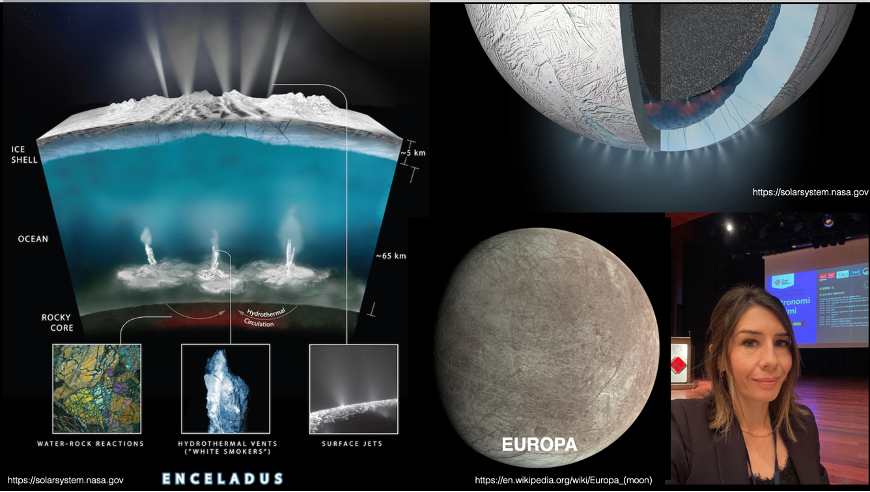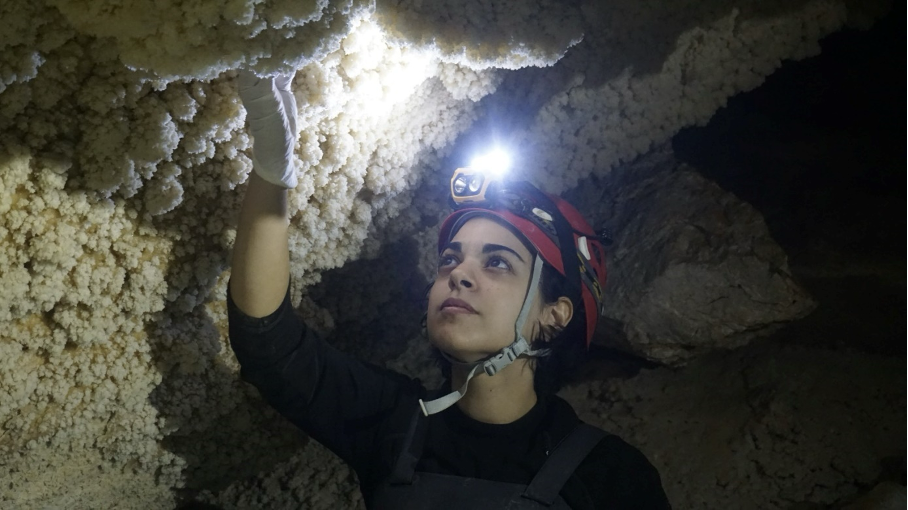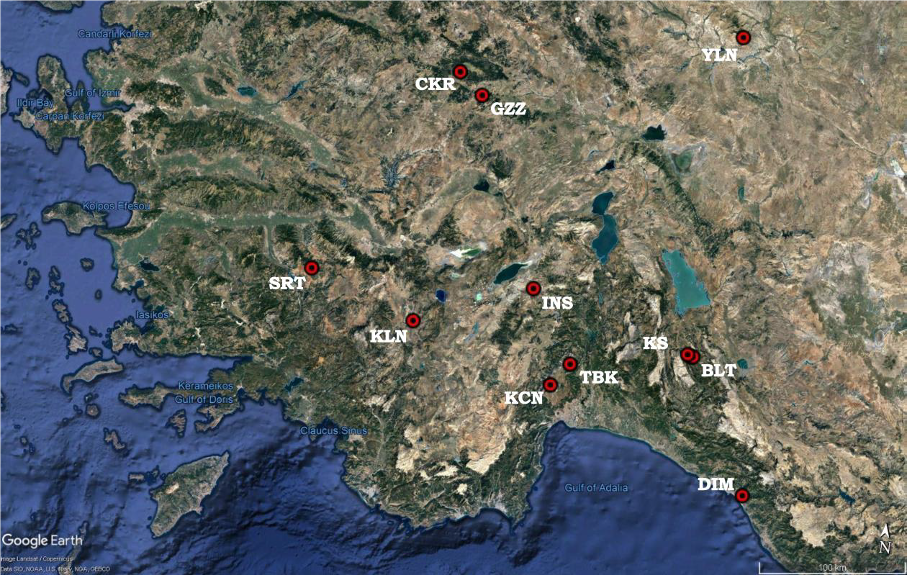Eurasia Institute of Sciences Earth System Science Programme PhD Students Seda Işık and Ezgi Tok have been granted support by TÜBİTAK within the scope of the projects carried out under the supervision of Assist. Prof. Dr. Nazlı Olğun Kıyak.
The project entitled "Geochemical stability models of astrobiologically important molecules in icy ocean worlds", led by Seda Işık, a PhD student in the Earth System Science Programme of the Eurasian Institute of Earth Sciences and supervised by Assist. Prof. Dr. Nazlı Olğun Kıyak, aimed to calculate the stability of molecules important for life in a wide pressure-temperature range in the subcrustal oceans of some moons of Saturn and Jupiter (Enceladus, Titan, Europa, Ganymede). The project considered the citric acid cycle, one of the most interesting reaction chains for early life, and modelled the stability analyses of all 8 steps of the cycle over the geotherms of the target satellites. It was found that some organic molecules involved in this cycle, which play an important role in cell metabolism, are not stable under the thermodynamic conditions of ocean worlds.

The project entitled "Bacterial Microbiota as an Ecosystem Component in Karstic Caves: Examples from Türkiye", led by Ezgi TOK, PhD student in the Earth System Science Programme of the Eurasian Institute of Earth Sciences and supervised by Assist. Prof. Dr. Nazlı Olğun Kıyak, aimed to investigate the microbiota in 13 karsitc caves in Türkiye by usig New Generation Sequencing (NGS) method. Cave micro-climate (CO2, temperature and humidity) and rock/water geochemistry were also studied in the project.
Caves are underground spaces with surface connections, formed by geological processes. Climate properties such as atmospheric CO2 content, temperature and precipitation, vegetation and geological structure constitute the local characteristics of the atmosphere, hydrosphere, biosphere and lithosphere where the cave is located. Changes in these factors affect the micro-climatic, geochemical and hydrochemical conditions of caves, affecting the incave CO2 partial pressure, temperature, humidity and elemental/organic input; therefore, affect the geochemical, geomorphological and microbial properties of cave deposits.
However, cave microclimate, with a long response time to the changes in the surface climatic conditions, has its own properties and affects the geochemical, geomorphological and microbial properties of cave deposits as an independent factor. On-going processes within caves have not been fully realized. Covering a large karst geography with thousands of caves, Turkey is one of the most convenient countries for cave research. However, the literature on bacterial diversity of caves in Turkey is quite limited and the relationship between the diversity, micro-climate and geochemistry of cave deposits has not been investigated so far.
In the project, 13 caves located in Central Anatolia, the Mediterranean, and the Aegean regions were investigated. Microclimatic (CO2, temperature, humidity) and environmental (pH, alkalinity) measurements, geochemical and metagenomic analysis by Next Generation Sequencing (NGS) on water, sediment and speleothem samples from the caves. The results were evaluated by using statistical methods, both for each cave and regionally considering the geographical distribution area.

